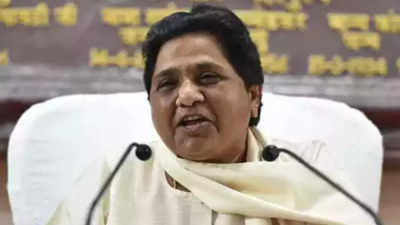
The Supreme Court ruled that states are not obligated to provide reservations in promotions for government jobs, sparking a wave of controversy and debate across political and social spheres. This decision has been met with resistance from various political leaders and social activists who argue that it threatens the progress made in affirmative action policies over the years.
Mayawati accused the BJP and Congress of paying lip service to the cause of social justice while failing to protect the rights of Scheduled Castes (SCs), Scheduled Tribes (STs), and Other Backward Classes (OBCs). She stated that the ruling is a significant setback for these communities, who rely on reservations to secure fair representation in government employment.
The BSP leader highlighted that reservations in promotions are crucial for ensuring that marginalized groups have access to higher positions and decision-making roles within the government. She asserted that the absence of such policies would perpetuate inequality and limit opportunities for those who have historically been disadvantaged.
Mayawati called on both the central and state governments to take immediate action to counteract the impact of the Supreme Court's ruling. She urged the enactment of legislation that would guarantee reservations in promotions, safeguarding the rights of SCs, STs, and OBCs in government jobs. This, she argued, is essential for maintaining the integrity of India's affirmative action framework and ensuring that the benefits of development are equitably distributed.
The BJP and Congress have responded to the ruling with cautious statements, emphasizing their commitment to social justice while navigating the complex legal and political landscape. Both parties have reiterated their support for reservations but have stopped short of promising immediate legislative action to address the Supreme Court's decision.
This ruling has also drawn criticism from various social activists and legal experts who contend that it undermines the spirit of the Indian Constitution, which aims to promote equality and protect the rights of marginalized communities. They argue that the decision fails to recognize the structural barriers and systemic discrimination that these groups face, which reservations in promotions are designed to address.
The debate over reservations in promotions is part of a broader discourse on affirmative action in India, which has been a contentious issue for decades. Proponents argue that such policies are necessary to correct historical injustices and provide equal opportunities for all citizens. Opponents, however, claim that reservations can lead to reverse discrimination and undermine meritocracy.
Mayawati's strong stance on this issue underscores the political significance of reservations and the ongoing struggle for social justice in India. As the nation grapples with the implications of the Supreme Court's ruling, the future of affirmative action policies remains uncertain. The reactions from political leaders, social activists, and the public will likely shape the course of this debate in the coming months.
The Supreme Court's decision on reservations in promotions has undoubtedly reignited discussions on the role of affirmative action in India. The responses from Mayawati, the BJP, Congress, and other stakeholders highlight the deep divisions and complex dynamics at play in this critical aspect of social policy.
